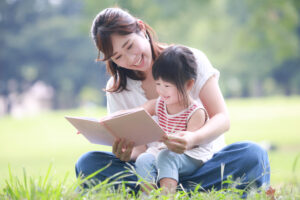 (StatePoint) It is natural for parents to be curious about how their children are developing mentally, emotionally and physically. And it’s even natural for parents to experience some apprehension about what is “normal.” But experts say that by better understanding your child, you can put the anxieties aside and help guide your children through each age and stage.
(StatePoint) It is natural for parents to be curious about how their children are developing mentally, emotionally and physically. And it’s even natural for parents to experience some apprehension about what is “normal.” But experts say that by better understanding your child, you can put the anxieties aside and help guide your children through each age and stage.
“Each child grows at a different pace,” advises Dr. Lise Eliot, an early childhood mental development expert. “There are few hard and fast deadlines when it comes to a child’s milestones.”
To ease parents’ concerns, Dr. Eliot worked with VTech, a world leader in age-appropriate and developmental stage-based electronic learning products for children, to create a set of Developmental Milestones. These milestones can be used as a guideline to help parents better understand a child’s development and determine which toys and games are appropriate for that stage. Here are three areas of development to consider:
Language and Cognition
Language immersion is absolutely key to children’s cognitive and emotional development. Children use words to express themselves, but also to learn about the people and world around them. Research has proven that early, two-way conversations with babies and young children are critical to speech and later reading development.
“Look for interactive toys and books to expand your child’s vocabulary and awareness of letter sounds,” says Eliot.
At the same time, children learn important concepts through non-verbal play, like building and sorting, and so the combination of verbal and spatial play is very powerful to children’s overall development.
Social Development
Relationships are at the core of all human learning. Babies look to their parents’ emotions and facial expressions to first learn about the world, and children continue to depend completely on other people to learn language and the rules of social engagement. Peers are an equally important part of the social equation.
“The fact is, we are a highly social species and the better children learn to read other people’s feelings and desires the easier time they will have learning and befriending others,” says Eliot.
Physical and Motor Skills
Children learn through play. And as every exhausted parent knows, their play is extremely physical. Whether it is learning to crawl, run, or build a toy tower, young children are constantly exercising their gross and fine motor skills, honing brain pathways for smooth, purposeful movement.
“The more opportunity children have for physical exertion and exploration, the better for the development of both their minds and bodies,” says Eliot.
For a detailed milestones guideline, sorted by age group and area of development, along with other free parenting resources, visit www.vtechkids.com/milestones.
With a broader understanding of child development, parents can relax, have fun and help their kids grow to their full potential.



